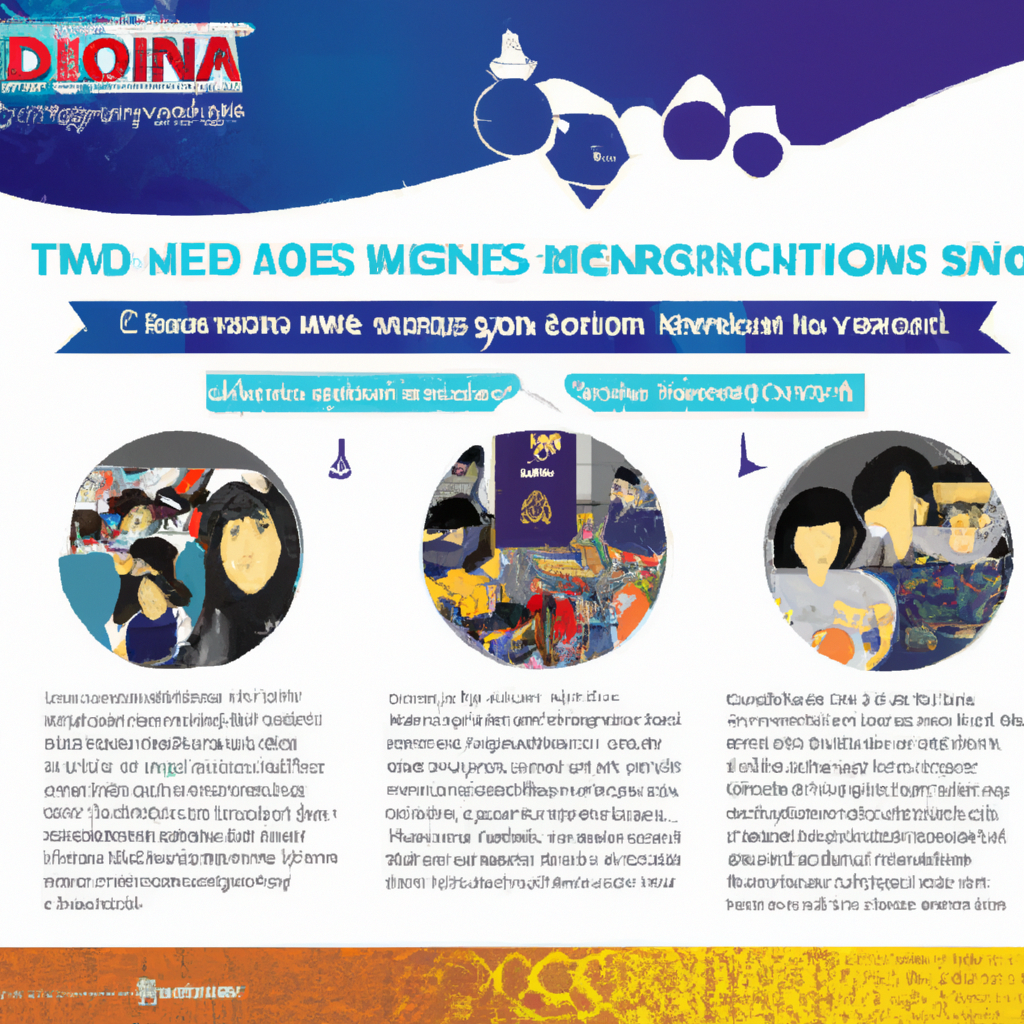Curious about the current status of stem cell regulations in Malaysia? In this article, we’ll explore the regulatory landscape surrounding stem cell research and therapies in the country. From understanding the context to diving into the details, we’ll provide you with a comprehensive overview of the subject. So, if you’re an expert in this field or simply interested in discovering the latest developments in stem cell regulations in Malaysia, this article is for you. Let’s embark on this fascinating journey together!
Introduction
In recent years, stem cell research has emerged as a promising field with the potential to revolutionize medicine and provide new treatment options for a wide range of diseases and conditions. However, the development and application of stem cell therapies require careful regulation to ensure safety, efficacy, and ethical considerations. In Malaysia, significant progress has been made in establishing legislation, regulatory bodies, and approval processes for stem cell therapies. This article aims to explore the current status of stem cell regulations in Malaysia, including national guidelines, regulatory bodies, approval processes, restrictions, and future developments.
1. Legislation on Stem Cell Research
1.1 National Guidelines on Stem Cell Research
Malaysia has established comprehensive national guidelines on stem cell research to ensure the responsible conduct and ethical considerations of studies involving stem cells. These guidelines provide a framework for researchers, institutions, and regulatory bodies to follow, covering areas such as informed consent, donor recruitment, handling, and storage of stem cells, as well as ethical considerations in the use of embryonic stem cells.
1.2 National Stem Cell Registry
To monitor and regulate the use of stem cells in research and therapy, Malaysia has implemented a National Stem Cell Registry. This registry serves as a centralized database that tracks the activities, sources, and types of stem cells used in the country. By maintaining rigorous records, the registry enables transparency, accountability, and the traceability of stem cell-related activities.

2. Regulatory Bodies
2.1 Ministry of Health
The Ministry of Health in Malaysia plays a crucial role in overseeing the regulation of stem cell therapies. It serves as the central authority responsible for formulating policies, guidelines, and regulations relating to the use of stem cells in clinical and non-clinical settings. The Ministry ensures that stem cell therapies adhere to safety, efficacy, and ethical standards, protecting the well-being of patients and the public.
2.2 National Committee for Stem Cell Research and Therapy
The National Committee for Stem Cell Research and Therapy is a specialized body established to provide expert advice, guidance, and oversight in the field of stem cell research and therapy. Comprising experts from various disciplines, this committee assesses research proposals, monitors ongoing studies, and ensures compliance with national guidelines. Their role is critical in safeguarding the integrity and quality of stem cell research.
2.3 National Pharmaceutical Regulatory Agency
The National Pharmaceutical Regulatory Agency (NPRA) is responsible for regulating and overseeing the manufacturing, importation, exportation, and distribution of stem cell products. The NPRA ensures that these products meet quality standards, safety requirements, and comply with relevant legislation. Their role is pivotal in safeguarding the interests of patients and ensuring that stem cell therapies meet the necessary standards of safety and efficacy.
3. Approval Process for Stem Cell Therapies
3.1 Clinical Trials
Before a stem cell therapy can proceed to clinical use, it must undergo rigorous evaluation through clinical trials. Malaysia has established a clear and defined approval process for conducting clinical trials involving stem cells. This process involves obtaining ethical approval from the relevant Institutional Review Board (IRB) or Medical Research Ethics Committee (MREC) and obtaining regulatory clearance from the NPRA. The comprehensive evaluation ensures that the proposed therapy has undergone sufficient preclinical testing and demonstrates potential benefits with acceptable safety profiles.
3.2 Stem Cell Therapy for Non-Clinical Trials
For stem cell therapies that are not intended for clinical trials, such as autologous use, Malaysia has implemented a separate approval process. This process involves obtaining approval from the Cell and Tissue Bank Unit under the Ministry of Health. The therapy must meet specific criteria, including safety, traceability, and adherence to national guidelines. The approval process ensures that even non-clinical stem cell therapies are subject to regulatory oversight to protect patients’ well-being.

4. Current Restrictions and Limitations
4.1 Import and Export of Stem Cells
The import and export of stem cells in Malaysia are subject to specific regulations to ensure the quality and traceability of these materials. Stem cell products must comply with the guidelines set by the NPRA and the National Stem Cell Registry. Strict regulations aim to prevent the entry of unauthorized or unverified stem cell products into the country and ensure that imported stem cells meet the necessary safety and efficacy standards.
4.2 Advertising and Promotion
To protect the public from potentially misleading claims and unethical practices, regulations are in place to control the advertising and promotion of stem cell therapies in Malaysia. Stem cell clinics and providers must adhere to guidelines set by the Ministry of Health, ensuring that their marketing materials accurately reflect the current scientific understanding and evidence surrounding stem cell therapies. The regulations aim to maintain transparency and prevent false or exaggerated claims that may mislead patients seeking treatment.
4.3 Ethical Considerations
Ethical considerations play a significant role in stem cell regulations in Malaysia. The use of embryonic stem cells in research and therapy is subject to strict guidelines and regulations to ensure that it aligns with ethical principles. Malaysia has adopted a careful approach to address ethical concerns, emphasizing the importance of informed consent, donor recruitment, and the responsible use of embryonic stem cells. These regulations strike a balance between scientific progress and ethical considerations.
5. Challenges and Future Developments
5.1 Public Awareness and Education
One of the ongoing challenges in stem cell regulations is the need to improve public awareness and education about the field. Malaysia should prioritize efforts to educate the public about stem cell research, therapy options, and the regulatory framework in place. By promoting a better understanding of stem cell therapies, Malaysia can empower patients to make informed decisions, protect their rights, and engage in meaningful discussions surrounding the subject.
5.2 Collaboration with International Partners
Collaboration with international partners is crucial for Malaysia to stay updated with the latest advancements in stem cell research and regulations. By establishing partnerships and engaging in knowledge exchange, Malaysia can benefit from global expertise and best practices. This collaboration will allow Malaysia to align its regulations with international standards and contribute to the global advancement of stem cell research and therapies.
5.3 Updates in Stem Cell Research
Stem cell research is continually evolving with new discoveries and breakthroughs. As new scientific evidence emerges, regulations may need to be updated to accommodate these advancements. Malaysia should remain proactive in monitoring developments in stem cell research and adapting its regulations accordingly. By staying up-to-date, Malaysia can ensure that its regulatory framework is aligned with the current scientific understanding, promoting the safe and effective use of stem cell therapies.

6. Conclusion
Malaysia has made significant progress in establishing regulations for stem cell research and therapies. Through national guidelines, regulatory bodies, and approval processes, Malaysia ensures the safety, efficacy, and ethical considerations of stem cell therapies. The Ministry of Health, the National Committee for Stem Cell Research and Therapy, and the National Pharmaceutical Regulatory Agency play essential roles in regulating, overseeing, and monitoring stem cell activities in the country. While challenges and future developments lie ahead, Malaysia’s commitment to public awareness, collaboration with international partners, and staying updated with stem cell research will drive the continued growth and responsible use of stem cell therapies.




